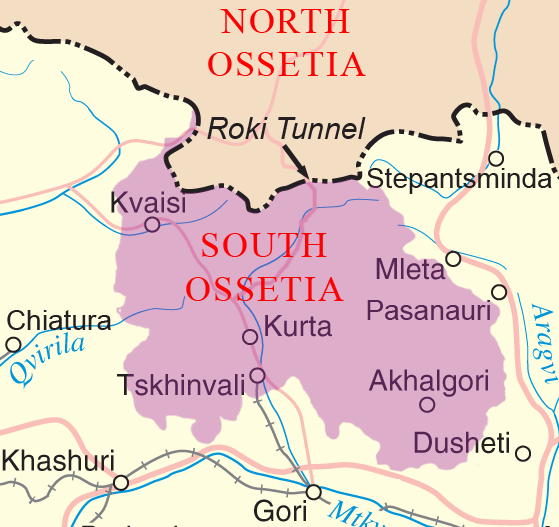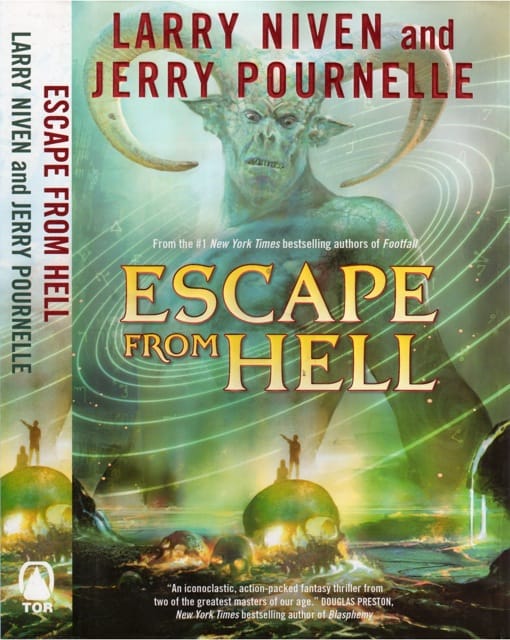The Long View 2008-01-03: Warren on Dynasties; Sarkozy on God; Steyn on Trial; Nations on the Downslope

South Ossetia
By United Nations Cartographic Section, with amendments by User:ChrisO - United Nations Cartographic Section, Public Domain, https://commons.wikimedia.org/w/index.php?curid=4548500
There is a fascinating bit here at the end of John J. Reilly’s blog post about how current “independence” movements are always really “dependence“ movements, as the states in question never have any ability to function or defend themselves without a more powerful sponsor. This can happen recursively, for example, the state of Georgia in the Caucasus broke away from the USSR, and while Russia would probably like to fold it back in more formally to their sphere of influence, an alliance with the United States keeps it separate. However, that alliance could not prevent South Ossetia from breaking away from Georgia under the protection of Russia.
An exception might be Brexit, insofar as the United Kingdom is one of the nations with enough money and power to stand on its own.
Warren on Dynasties; Sarkozy on God; Steyn on Trial; Nations on the Downslope
David Warren apparently knew the late Benazir Bhutto slightly. He says she was brave and beautiful and kept a superior brand of chocolate in her refrigerator. On the whole, however, his comments are not kind. And he has some cutting things to say about the dynastic principle:
Those who thought Ms Bhutto the agent of democracy and progress, because she was young and a woman and told them in fluent English exactly what they wanted to hear, should know that she, like every other woman who has risen to power in the region, including a prime minister of India, two in Bangladesh, and now two in Sri Lanka -- inherited dynasties founded by powerful men. The (murderous) "Good Queen Bess" did not rise to the throne in 1558 on a wave of democracy and feminism in late mediaeval England. She rose as the daughter of the (murderous) Henry VIII. It is the failure to grasp such simple facts that makes so much Western journalism ridiculous.
Hillary Clinton, who also knew Benazir Bhutto slightly, should think twice before identifying herself too closely with her.
In any case, as for this matter of telling people "in fluent English exactly what they wanted to hear," we should not imagine that Ms. Bhutto was like Yasir Arafat, who said radically different things to Anglophone and Arabic-speaking audiences. She seems to been a "native transnationalist":
She thought in English, her Urdu was awkward, her "native" Sindhi inadequate even for giving directions to servants. Part of her political trick, in Pakistan itself, was that she sounded uneducated in Urdu. This is as close as she got to being "a woman of the people."
For that kind of politics, maybe populism is a mistake. If your audience consists of people who do not think very highly of themselves, then your best bet may be to emphasize how much better you are. Traditionally, political spectacle was about appearing to be as grand as possible.
* * *
Speaking of political spectacles, I see that French President Nicholas Sarkozy raised some eyebrows during his visit to the Vatican on December 20. According to Robert Royal:
Le Monde rightly took all this to mean that Sarkozy was also announcing his differences as president of the French Republic with the old guard of Catholic presidents, notably Valéry Giscard d’Estaing and Jacques Chirac, who led the fight during the debate over the European Constitution for a more hard-line secularist format à la française to keep out any reference to Europe’s Christian roots in that document. In perhaps his most breathtaking maneuver, Sarkozy made a good case for a very different notion of what it should mean to believe in a lay Republic à la française. For him, French culture should be more open to all the wisdom available in the various religious traditions of his people. He put this forward with all due respect for the nonbelievers in France but also with a breadth of spirit that made the old claims of a rigidly secularist public order as the only guarantor of liberty for all citizens look decidedly illiberal.
It will be interesting to see how, if at all, this new thinking enters into the continuing formation of the European Union. There are several important differences between the EU process and that which attended the formation of the US federal government. The US Constitution is an application, not an operating system; it did not need to mention religion. The EU structure is nearly the opposite: an operating system that defines the scope of the possible applications. Silence about religion in the EU constitutional documents is a form of mild repression.
* * *
What advice should be give Mark Steyn, columnist and martyr, as he faces charges before several Canadian human rights commissions for Islamophobic comments? As he notes, innocence is no excuse:
As evidence of how the process is ultimately "fair", [Toronto attorney Gary J. Wise cites a 2002 case from Saskatchewan, in which the HRC ordered both The Saskatoon Star Phoenix and Hugh Owens to pay $1,500 to each of three complainants who had objected to the Star Phoenix's publication of an advertisement by Mr Owens. The advertisement quoted some of the sterner Biblical passages on homosexuality. Actually, it didn't "quote" them. It merely listed the relevant chapter and verse: Romans 1:26, Leviticus 18:22 and 20:13, and I Corinthians 6:9. Nonetheless, that was enough for the HRC, which relieved the parties of nine thousand bucks for "exposing homosexuals to hatred or ridicule".
However, as Mr Wise points out, four years later the Saskatchewan Court of Appeals overturned the verdict, and he evidently regards this as a satisfactory outcome demonstrating the robustness of freedom of expression in Canada. He's right, in an extremely narrow legal sense. But in real terms what's the consequence of Mr Owens' four-year struggle? ...Garry Wise ought to know that the "Human Rights" process is not an exercise in law. Truth is no defence. In all their whiney columns and letters about their lack of opportunity to "rebut" my piece, the four Osgoode Hall students have not "rebutted" a single quotation, a single fact, a single statistic. And why should they? The accuracy of the statements is not at issue. All that matters is whether you were "offended" by them.
The principled thing to do would be to refuse to answer the charges, arguing that the tribunals in question are themselves illegitimate. However, you do that at your peril when confronting an organ of the government of a liberal democracy. For one thing, liberal democracies tend to last a long time, so it's not like vacationing in Switzerland for a few years until the President for Life's term expires when a mortar hits the presidential palace. Steyn would have to count on a minor political transformation in Canada, if he wants to be able to do business there again.
* * *
Finally, J. R. Nyquist has some wildly misleading advice on The Advantage of the Nation State
The real international struggle is between nations and governments. It is not between cabals or cliques or capitalist enterprises. It is not even between ideologies. When we read of a looming financial crisis, credit contraction or the falling dollar, we are reading about things that will affect nations. The political reaction will come on the national level...When we read about the mortgage bust, about the largest banks writing off billions of losses, we merely see that specific economic arrangements are being upset; that economic instruments are failing. Whatever happens in this regard, however great the financial hit, the nation-state remains....
Not on this planet, it doesn't. The cartography industry has been busy these past few decades in providing maps for the ever growing number of states that split off from larger states. The nation-state meant something when there were two dozen or so of them. Now there are nearly 200, and most of them depend for the stability of their currencies and the protection of their territory on ties with larger states or alliance systems. The point is not that there are no more important states; the important thing about the world today is that the nations state as a political form is decadent.
The achievements of the internationalists are illusory. Aside from the nation-states that make up the international order, they have no bombs or missiles or tank divisions. In the end, internationalist policies are advanced by individual nation states. And these policies will ultimately be reversed by those same states when the implications of internationalism become clear....We are not one. We are individuals with individual traits and attachments. What attaches me to the globe is nothing compared to the reality of language, culture, family and tribe. Every individual has a motherland and a mother tongue. There are national sentiments and national interests. Given the present state of public knowledge, progress and intellectual development, the nation is the largest viable political formation...
The strongest patriotisms are usually more local than the nation; the strongest loyalties are often higher.
Those who assume that internationalism is somehow winning have made an error. Internationalism cannot win.
Possibly not, but that is by no means the same as saying that nationalism will displace it. It will never be 1900 again. "Internationalism" is just one kind of universalism, just as "nation state" is only one form of localism; indeed, only one of several possible forms of state.
Copyright © 2008 by John J. Reilly
Support the Long View re-posting project by downloading Brave browser, and then trying it out. With Both Hands is a verified Brave publisher, you can leave me a tip too!



Comments ()